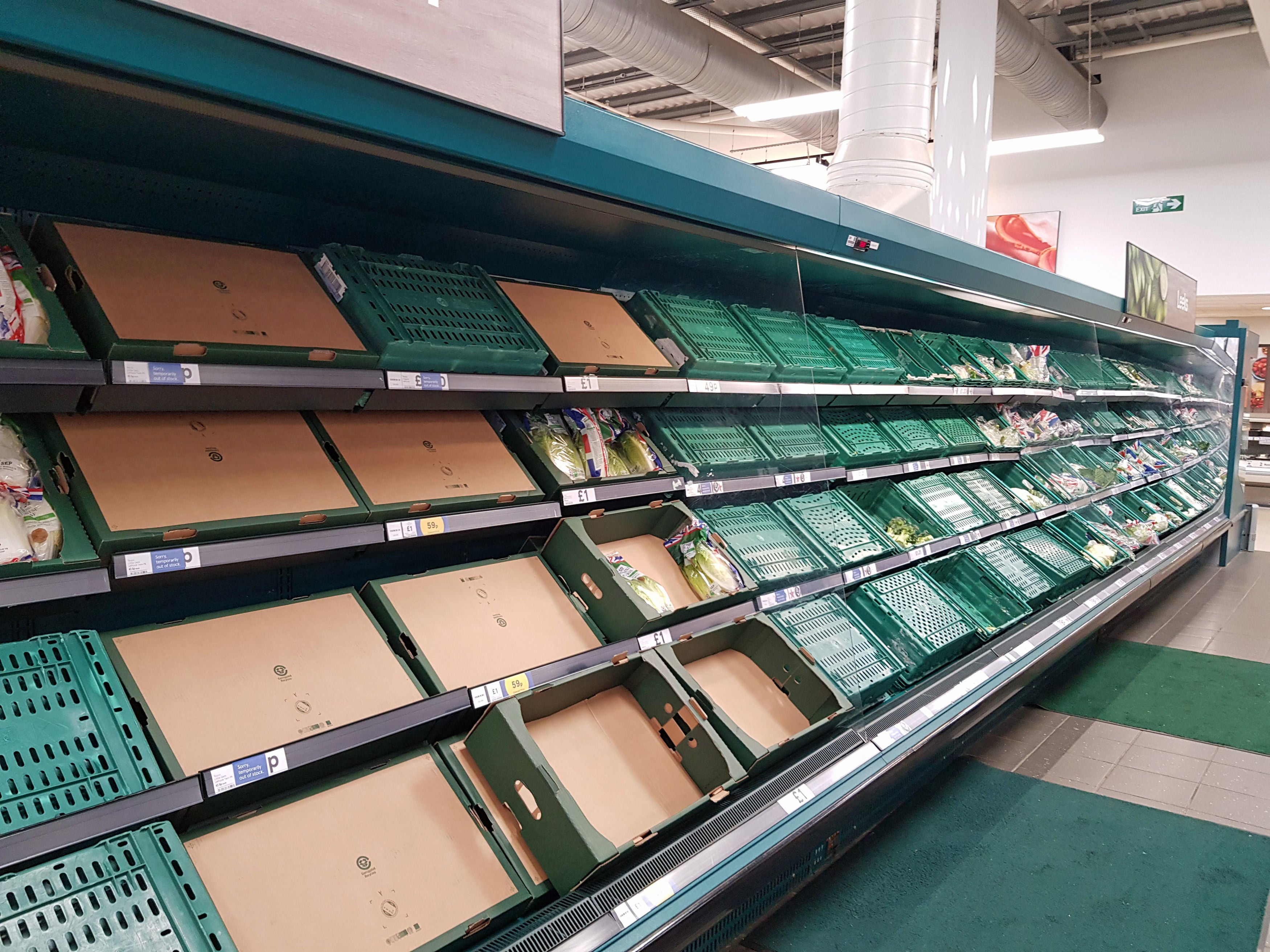Supermarket food shortages will be over by Christmas, Downing Street says
Shoppers will enjoy a ‘normal Christmas’, Boris Johnson’s spokesman predicts – despite industry warning of ‘permanent’ gaps on shelves

Your support helps us to tell the story
From reproductive rights to climate change to Big Tech, The Independent is on the ground when the story is developing. Whether it's investigating the financials of Elon Musk's pro-Trump PAC or producing our latest documentary, 'The A Word', which shines a light on the American women fighting for reproductive rights, we know how important it is to parse out the facts from the messaging.
At such a critical moment in US history, we need reporters on the ground. Your donation allows us to keep sending journalists to speak to both sides of the story.
The Independent is trusted by Americans across the entire political spectrum. And unlike many other quality news outlets, we choose not to lock Americans out of our reporting and analysis with paywalls. We believe quality journalism should be available to everyone, paid for by those who can afford it.
Your support makes all the difference.Supermarket food shortages will be over by Christmas, No 10 says – rejecting industry warnings that shoppers must get used to “permanent” gaps on shelves.
Boris Johnson’s spokesman set up the hostage to fortune as he dismissed an extraordinary claim that the days when people could pick up almost any item they want, whenever they want, are over.
The gloomy boss of the Food and Drink Federation said there was no prospect of the problems – triggered by a combination of Brexit and Covid – ending quickly.
“It’s going to get worse and it’s not going to get better after getting worse any time soon,” Ian Wright told an event organised by the Institute for Government.
“The result of the labour shortages is that the just-in-time system that has sustained supermarkets, convenience stores and restaurants – so the food has arrived on shelf or in the kitchen, just when you need it – is no longer working.
“And I don’t think it will work again, I think we will see we are now in for permanent shortages.”
But, quizzed by The Independent, the prime minister’s spokesman rejected the warning, saying: “We don’t recognise those claims.
“We have got highly resilient food supply chains which have coped extremely well in the face of challenges and we believe that will remain the case.”
Pressed on whether the shortages will ease to allow people to enjoy a “normal Christmas”, the spokesman replied: “I believe so, yes.”
No 10’s confidence comes despite the CBI business group warning that the labour shortages blamed for the gaps on shelves and restaurant menus could last up to two years.
Despite gathering criticism, the government has rebuffed calls to loosen immigration rules – to attract more HGV drivers, for example – insisting businesses must stop relying on EU workers.
However, the fear of creating a bigger crisis is expected to see the government shelve full post-Brexit import controls on imports from the EU, for a second time.
Mr Wright said the shop shortages did not mean the country is ever going to run out of food.
But he warned: “The UK shopper and consumer could have previously expected just about every product they want to be on the shelf or in the restaurant all the time. That’s over, and I don’t think it’s coming back.”
The food and drink industry is short of around half a million workers, he said, meaning it is missing about 1 in 8 the total number of people it needs in its workforce.
The dearth was partly the result of EU nationals leaving the UK because of both the pandemic and the UK leaving the European Union.
The lack of lorry drivers was partly caused by them moving to online retailers and starting to deliver for Amazon and Tesco – to get better hours and pay.
Join our commenting forum
Join thought-provoking conversations, follow other Independent readers and see their replies
Comments